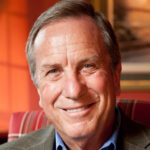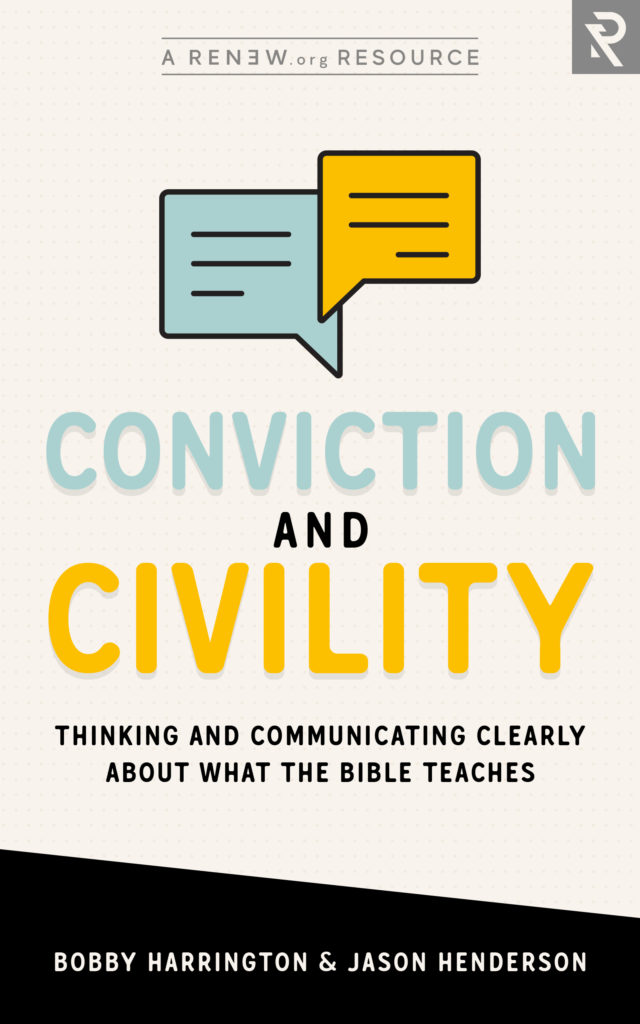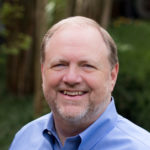
Racial Reconciliation & Church Unity – Part 1 of a Conversation with Bob Russell
*Editor’s Note: Brett Seybold recently sat down with Bob Russell to talk about the state of the American church in light of current events and trends. This is part 1 of that conversation. Here’s Part 2 and Part 3.
Q. Although the church should be the place the world looks to in order to find racial reconciliation and racial oneness, the world is looking elsewhere. What are some things you wish the church in the past had done to better heal racial wounds? In other words, what could the church have done in order to be seen more as the solution today?
We’re not where we need to be, but the good news is that a lot of progress has been made both in the world and in the church. I go to a lot of churches that are much more diverse today. A lot of churches have done more behind the scenes than anyone is aware of.
I have written an unpublished blog called “We Should Have Done More, but We Didn’t Do Nothing.” In it, I reminisce about the early 90’s around the time of the brutality against Rodney King and the resulting unrest. We decided to intentionally build bridges and pursue reconciliation with the black community. For example, we combined services with a black congregation, we stepped up our work on our inner-city church plan, and some of our members continued to help train black preachers through Louisville’s College of the Scriptures.
By the mid-90s, more opportunities arose to help. A black church building had burned down. So our church [Southeast Christian Church] helped them with personnel and with a gift of $500,000 toward reconstruction. Several years later, we established a grant program which resulted in over $3 million to aid inner-city churches. We were able to partner with New Beginning Baptist Church to rebuild 32 houses for families. One church wanted $11,000 to build a wheelchair ramp. The Southeast team not only built the ramp, but did landscaping, worked together with the congregation on the project, and I was able to preach there on one occasion.
In the late 90’s, we sold Southeast’s middle building to a black church, and I became friends with the preacher, Walter Malone. Walter commented about the building we were moving into, “Now you all take good care of this current building because we got our eye on it.”
Looking back, I wish I had done more of this. I wish I had been more intentional about this type of ministry. We were a bit late on giving black preachers a platform in our predominately white churches.
“I wish I had been more intentional about this type of ministry. We were a bit late on giving black preachers a platform in our predominately white churches.”
Dudley Rutherford in California is a preacher who has been very intentional in reaching the African American community. Barry Cameron at Crossroads Community Church in Dallas has also been very successful in reaching a diverse audience. We came to that idea late.
I wish we had involved ourselves in more dialogue with the African Americans in our own church. We had a wonderful internship program to prepare people for various types of ministry; I wish we had sought out more African American interns for this program. I wish we had been more intentional.
I was once in a bad car accident where I injured my head. Within a few weeks, the bruises were gone. However, for about a year afterward, the spot was still tender. No one would ask how I was doing after the visible marks were gone. However, I liken situations like the George Floyd tragedy to these remaining wounds. I’ve come to understand that we white people don’t always understand how deep those wounds are.
Q. Let’s say you are talking to a pastor who is in an area where racial tensions are high. Half of his congregation wants him to join protests on behalf of racial justice, and the other half wants him to stop talking about racial issues altogether. In order to help heal the racial hurt in his city, what are the kinds of things the pastor can say and do which are grounded in the gospel, not the latest social theories? What’s your advice?
Boy, Satan loves to divide the church. The preacher is going to need wisdom.
Black lives matter. There have been racial injustices that need to be addressed. At the same time, I cannot ignore that the actual organization [Black Lives Matters] has Marxist roots, and I can’t endorse Marxism.
If I were a local pastor again, I would establish my position and go to the elders and ask for their endorsement. If you have unity at the core, the church can go through a lot. It’s when there’s disharmony at the core that the church finds itself in danger. Then I would communicate clearly, “This is where the leadership of this church stands.” Often members are not sure where the preacher stands.
Q. America seems incredibly divided. How can churches possibly hold together and be a model of unity in such times?
This is a constant battle for the preacher today. One thing we have to accept is that we cannot please everybody, and we are going to lose some people over stands that we take. We have people in our pews whose allegiance is more toward a political party, family members, or a particular race, than it is to Jesus Christ.
There is a sense in which the preacher cannot keep people from leaving. Jesus Himself watched people leave Him and no longer follow. After a large crowd decided to no longer follow, Jesus turned to His disciples and said, “Do you want to leave too?” (John 6:67). We have to speak the truth in love, regardless of the outcome.
Here are a couple thoughts that might help in holding churches together: First, it helps when a preacher early on distinguishes between primary doctrine and secondary doctrine. Second, a key to keeping the church united is to be decisive early. Instead of delaying, mulling over possible answers, and hoping the potential problem will go away, the church leaders should come to a common consensus early.
“It helps when a preacher early on distinguishes between primary doctrine and secondary doctrine.”
Then communicate clearly what the position of the church is going to be. For example, I think most evangelical churches did this pretty well on the matter of abortion. Churches courageously took a stand:
“We are a pro-life church, regardless of what the Supreme Court says. Now if you have had an abortion, we want you to know God is a God of grace and forgiveness. He loves us in spite of our sin. You are welcome as an important part of this body. But going forward, we stand for life.”
That strong stand may have alienated a few people, but it solidified the church and has made a significant difference in helping the swing back toward a pro-life position nationally. We didn’t do that as well with gay marriage and are now seeing that issue divide the church.









